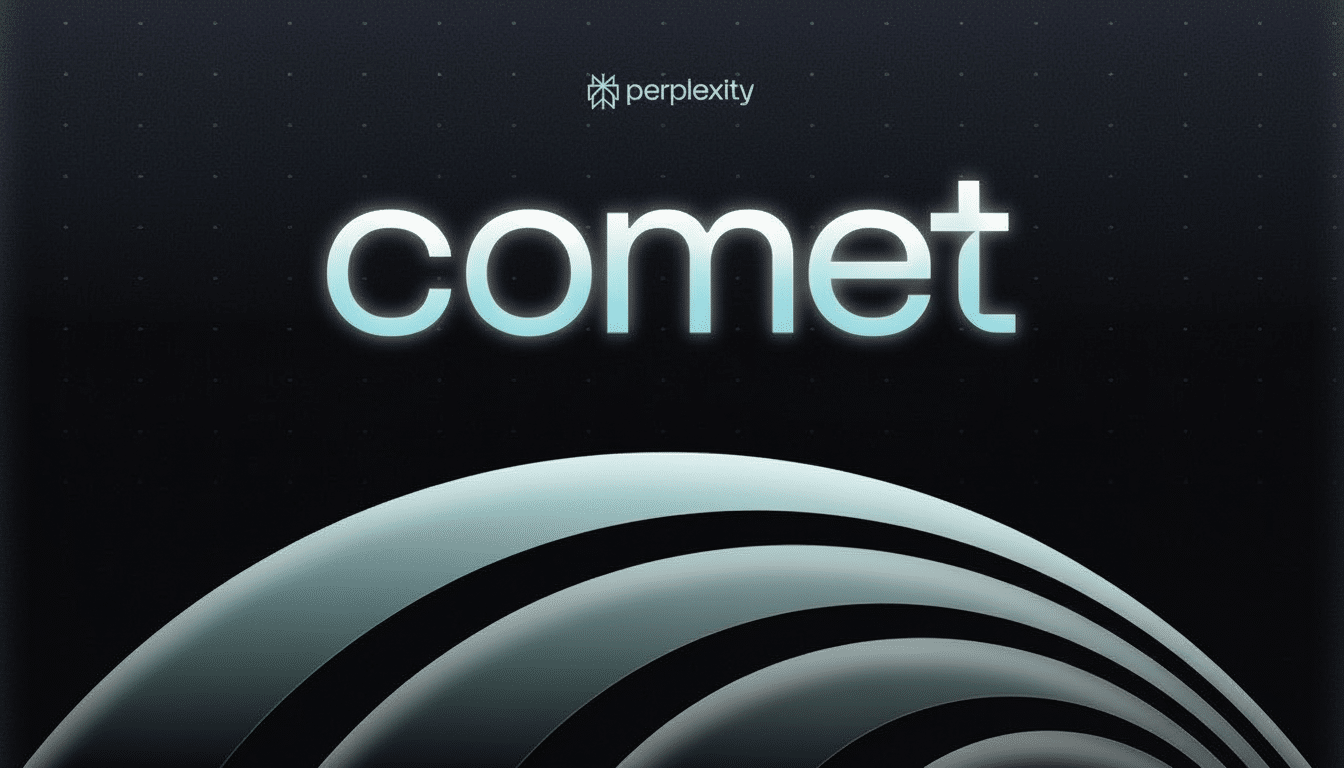Perplexity is opening early access to Comet for people who use Android devices, via a new mobile app.
The release is a significant milestone for the answer engine as it enters a platform that constitutes the majority of worldwide smartphones, positioning Comet for widespread mobile utilization.

What early access reveals about Comet’s Android app
Early users have posted short clips and screenshots on social media that indicate a prompt-forward interface that launches with suggested queries, with a text input bar displayed near the top. The app positions itself as more of an AI agent than a typical browser, prompting users to ask questions or issue commands before typing in a URL.
Comet’s Android version has the standard browsing niceties — tab management, history, downloads, bookmarks, and site settings — plus controls to make it the default browser. There’s a toggle for blocking ads and trackers in settings, and leaked footage suggests there could be some form of home-screen widgets to put you right into common actions.
A Browser With Agency, Tailored to Mobile
Comet also markets itself as an “agentic” browser: it doesn’t only render pages, but makes plans and executes multi-step tasks. Think skimming multiple sources for a trip plan and pulling out crucial facts, or condensing a dense PDF down to the actionable highlights — all without having to manually switch between browser tabs. That framing matches Perplexity’s primary product, which combines retrieval with large language models to produce sourced answers.
The Android shift is significant because of scale. Android now runs on around 71% of handsets globally, according to the most recent figures from web analytics group StatCounter. If Comet can make AI-native browsing business-as-usual on mobile (first with text, eventually in voice and other formats), it’s tapping into a humongous addressable user base that is doing ever more research, shopping, and reading on smaller screens.
The competitive context for AI-native mobile browsing
AI-powered browsing is on the fast track. OpenAI is experimenting with Atlas, The Browser Company is creating Dia, and Brave offers its assistant Leo across all its versions. Edge from Microsoft leans on Copilot while incumbents experiment with on-page summarization and writing aids. The differentiator with Comet is its answer-first design — it wants to condense the search, open, skim, and curate loop into one agent-driven flow.

Mobile execution will be the test. Speed, relevance, and low friction are more important on Android too—users care about battery drain, background data usage, and UI clutter. A default-browser setting and widgets make it seem as though Perplexity wants Comet to be your daily driver, not an occasional research tool.
Privacy and security questions around agentic browsing
Agentic browsing also opens up new risk surfaces. The OWASP Top 10 for LLM Applications lists prompt injection, information leakage, and over-permissive tool use as common risks. When fed malicious web content, vulnerable AI agents could be led into uncovering sensitive data or performing unauthorized functions, security researchers have demonstrated.
Comet’s integration of tracker and ad blocking is a positive start; however, users are encouraged to also evaluate app permissions, data retention policies, and how the agent handles credentials and form fills. Independent auditors, red-team reports, and transparent model disclosures are going to be the critical signals as Comet approaches broader release.
What to watch next as Comet approaches wider release
Perplexity’s CEO had previously hinted that Android development was accelerating, and the early access build confirms that. The company has not detailed how a full public launch will go live, but often, a closed beta like this leads into staged releases through the Play Store as feedback solidifies features and fixes edge cases.
The metrics by which we’d measure a more “successful” Comet include:
- Latency on real-world networks
- Battery cost incurred over extended sessions
- Improved citation and organization of sources on a mobile device
Model selection, offline behavior, and any perks for paying subscribers will also decide whether Comet graduates from curiosity to your preferred browser on Android.

